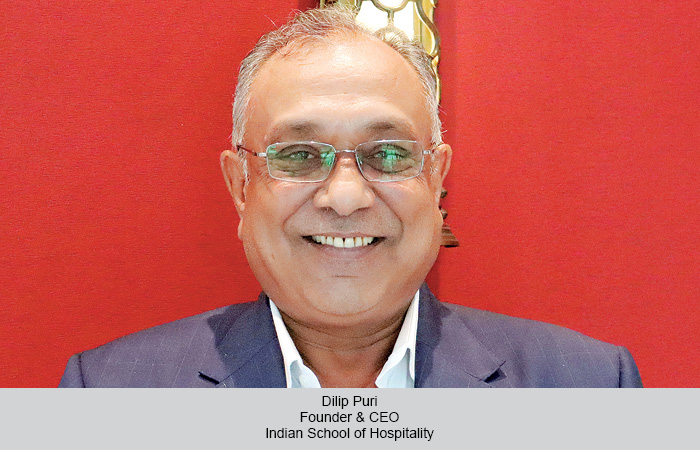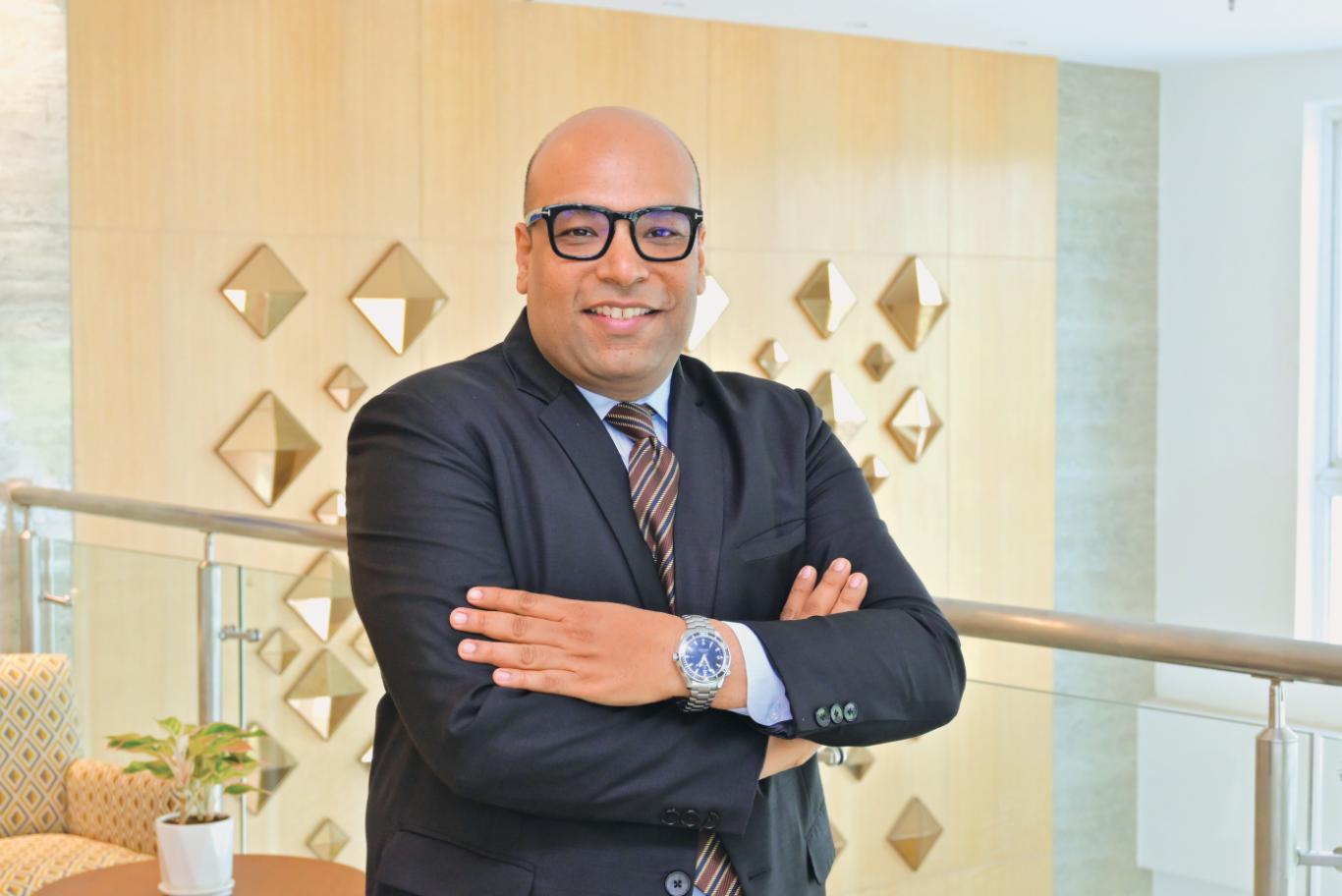The hospitality sector in India is witnessing a strong growth, but to thrive globally, the focus must shift towards experience curation, embedded sustainability, tech integration and strategic marketing, says Dilip Puri, Founder & CEO, Indian School of Hospitality. It’s time to repush ‘Incredible India 2.0’ campaign—backed by robust government support, Puri adds.
Surbhi Sharma
India’s hospitality market is evolving and so does the definition of luxury hospitality. It’s no longer only about grand hotel rooms or fine dining, but also about creating meaningful and story-worthy experiences. Dilip Puri, Founder & CEO, Indian School of Hospitality, explains, “Today’s luxury travellers seek experiences that stay with them—something they can talk about and remember.”
Luxury, he adds, is now about emotional recall, unique storytelling and personal connection, not just service or opulence. This shift requires hospitality brands to focus on immersive offerings, local narratives and authentic cultural engagements.
Luxury requirements
Sustainability is no longer an optional add-on for hotels. “Even a traveller paying $1,000 a night now asks what are you doing about sustainability?” Puri emphasises. He believes sustainability and technology must be integrated into a luxury hotel’s DNA. “From energy-saving smart sensors in rooms to waste reduction systems and sustainable sourcing, customers are now driving the green agenda.”
Certifications
Touching upon sustainability certifications, Puri questions their relevance in the digital-first era. He believes that travellers today no longer rely on official hotel classifications, such as five-star ratings or certifications, but on online reviews, personal experiences and transparency. “Most leading hotel chains already practice sustainability better than certification norms demand. They don’t need to tick boxes for validation,” he says, adding that the best stamp of approval is guest feedback, not bureaucratic checklists.
India market
As the hospitality sector in India witnesses a strong domestic growth, do we need to push for inbound growth? Puri says, “With India’s booming domestic market and high-paying Indian travellers, many hotels already generate strong revenues without foreign footfall.”
However, he insists that India must re-market itself internationally to reflect improved connectivity, infrastructure and guest experiences. To achieve this, he suggests that tourism budgets should be enhanced. “Foreign tourists no longer face the issues they did 15 years ago. It’s time to repush the revamped ‘Incredible India 2.0’ campaign—backed by robust government support,” he concludes.
 TravTalk India Online Magazine
TravTalk India Online Magazine





